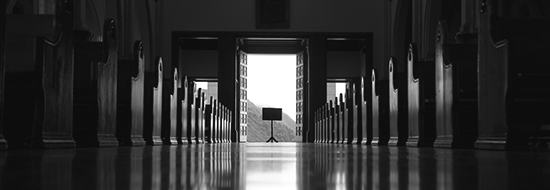QUESTION #4: How can I make sure I’m being taught from a biblical worldview perspective?
Answer:
Dr. Nathan Crockett:
“…You want to find a ministry, find a church, find a Christian school, Christian university, a homeschool group that really takes the Bible seriously. The Bible isn’t something that’s just kind of tacked on, let me grab a verse I can throw in my fridge, let me find something. I sometimes find young people and they’re living in sin, or whatever, living together without being married and they’ll try to find the verse, “Well, the Bible says we should love each other, we should bear all things, so we’re doing this out of love and out of the best of intentions.”
But you want a church that lets the Bible say what it does say. We just celebrated this huge anniversary of the Reformation and the Reformers had their flaws, but one of the great things about the Reformers is that they wanted to get back to Sola Scriptura, the Bible alone and really interpreting it literally, so much of the allegorical approach to Scripture had held sway for years and years and years, and we could go off on a long discussion about that, but to come back to Scripture and say, “What does the passage say to me?”
For instance, one of the things the Bible teaches is that we are all incurably sinful and that’s why we need the cross, that’s why we need Jesus. We need His righteousness on our behalf. But if you go to a church that has a very high view of unsaved people and that we need to do whatever the unsaved people want, that shows you an inherent flaw in that ministry. In fact, I didn’t get too much time to go into the history of how we got from the Enlightenment to Post-Modernism, but much of that could be summed up with one three letter word and that’s the word ‘war’, because you had the Enlightenment saying that mankind is good and getting better and if we could just educate people more that everything would be perfect.
But really, when you had two World Wars and you had Germany and Japan, who were some of the most educated societies in the world, at the center of particularly World War II; and you have the world as a whole realizing that millions of people had been killed and we realized what was happening in Auschwitz and the brutal butcheries of Joseph Stalin and Mao Tse Tung and Pole Pott, that they perpetrated against their own people, it’s like collectively people realized that the Enlightenment experiment was dead and even secular people started to realize mankind is not good and getting better.
Now maybe we’re far enough removed from World War II that some people are going back to thinking that way, but that’s where post-modernism just came and said, “We can’t trust anyone, we can’t trust ourselves, we can’t trust anything.” In his book The Universe Next Door, James Sire said “The center holding us in place is vanished. Our age which more and more is coming to be called post-modern finds itself afloat in a pluralism of perspectives, a plethora of philosophical possibilities, but with no dominate notion of where to go or how to get there and near future of cultural anarchy seems inevitable.”
In other words, he was saying that we’re starting to live in a day when every man will do that which is right in his own eyes, and unfortunately, there are even churches and schools that have bought into that.”
To listen to the entire program, please click HERE.


Recent Comments